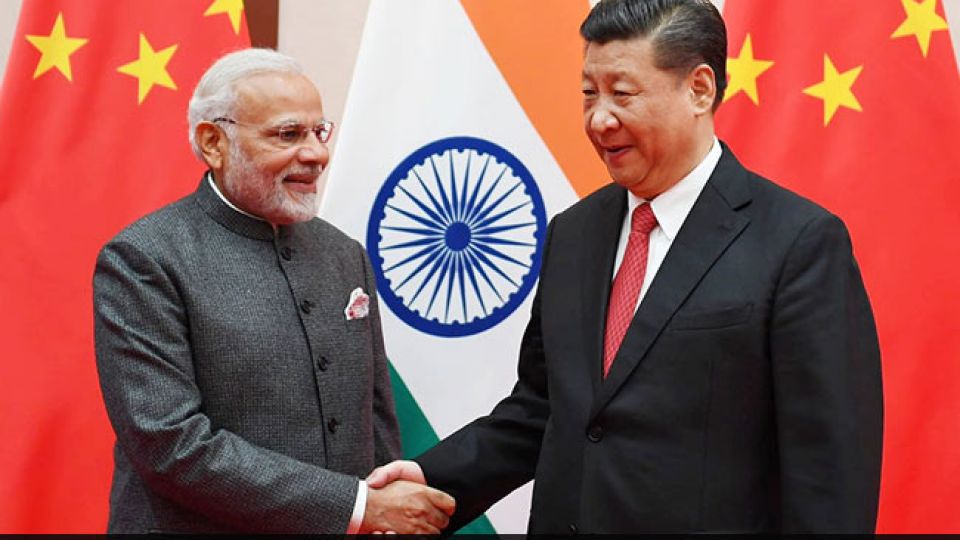June 13, 2018
Becomes lone dissenting voice against project at SCO summit.
India dashed China’s hope of securing unanimous support for its Belt and Road Initiative (BRI) from members of the Shanghai Cooperation Organisation (SCO) during a summit in the Chinese port city of Qingdao over the weekend (June 9-10).
Attending its first meet after becoming a full member of the SCO, India demonstrated its opposition to the ambitious BRI, with Prime Minister Narendra Modi asserting that mega-connectivity projects must respect sovereignty and territorial integrity of countries.
India has long been critical of the BRI as a key part of it – the China-Pakistan Economic Corridor or CPEC – passes through Pakistan-administered Kashmir. The BRI was proposed by Chinese President Xi Jinping in 2013 and is aimed at building a trade and infrastructure network connecting Asia with Europe and Africa along ancient trade routes.
India was the only one of the eight member states which did not endorse the BRI. This was revealed in the 17-page Qingdao Declaration, which named all the other member states – Russia, Pakistan, Kazakhstan, Kyrgyzstan, Uzbekistan and Tajikistan, besides China – as “reiterating support for China’s BRI” project.
India reiterated its stated position, which was articulated at the SCO Foreign Ministers’ meet in April. Prime Minister Narendra Modi laid the ground for India’s opposition to the project during his plenary speech.
He coined an acronym SECURE – ‘S’ for security for citizens, ‘E’ for economic development, ‘C’ for connectivity in the region, ‘U’ for unity, ‘R’ for respect of sovereignty and integrity, and ‘E’ for environment protection – to put forth his views.
“Connectivity with the neighbouring countries is India’s priority. We welcome the connectivity projects which are sustainable and efficient and which respect territorial integrity and sovereignty of the countries,” he said.
People-to-people contacts and exchange of ideas, he added, should be given priority.
Talking about the importance of transport corridors, Modi, in the presence of the Chinese President, said India’s commitment to connectivity projects is reflected in its involvement in International North-South Corridor project, development of Iran’s Chabahar port and the Ashgabat agreement.
While the North-South Corridor project is a 7,200-km multi-mode network of ship, rail, and road routes for moving freight between India, Iran, Afghanistan, Armenia, Azerbaijan, Russia, Central Asia and Europe, the Ashgabat agreement envisages facilitation of transit and transportation of goods between Central Asia and the Persian Gulf.
The summit helped Beijing get New Delhi’s participation in its efforts to rally support for China in the trade dispute with the Trump administration. “This is a lot more important to China than other issues as it battles to counter the possibility of a trade war being triggered by Washington,” the Times of India reported.
The SCO, at its 18th meet, expressed its support for an “open, inclusive, transparent, non-discriminatory and rules-based multilateral trading regime” while opposing trade protectionism of any form, Xi told a joint news conference.
Xi announced a 30 billion yuan (US$4.7 billion) loan to the SCO for joint projects.
The SCO’s eight member countries represent around 42 per cent of the world’s population and 20 per cent of the global GDP. It was founded at a summit in Shanghai in 2001 by the presidents of Russia, China, Kyrgyz Republic, Kazakhstan, Tajikistan and Uzbekistan. India and Pakistan became full members last year.
Modi used a bilateral meeting with Xi on the sidelines of the summit to take forward efforts to put India-China relations on an even keel after last year’s standoff at Doklam. Xi accepted an invitation to visit India next year for the second informal summit with Modi, which will be preceded by a series of meetings between key ministers and the National Security Advisers.
During Modi’s nearly hour-long meeting with Xi on June 9, the two sides expressed willingness to move beyond their differences on issues such as the border dispute and cooperate in a range of areas. This was their second significant meet in less than two months.
Meanwhile, India’s arch-rival Pakistan backed the BRI. President Mamnoon Hussain supported the venture and said CPEC has boosted Pakistan’s economy.
Modi said India would like to extend all cooperation to the SCO and that the bloc gives New Delhi immense opportunities to enhance friendship with resource-rich Central Asian nations.
He also referred to the threat of terrorism and talked about the “unfortunate” example of the effects of terrorism and extremism in Afghanistan, and hoped the bold steps taken by its President Ashraf Ghani to hold talks with the Taliban and restore peace will be respected by all the players in the region.


